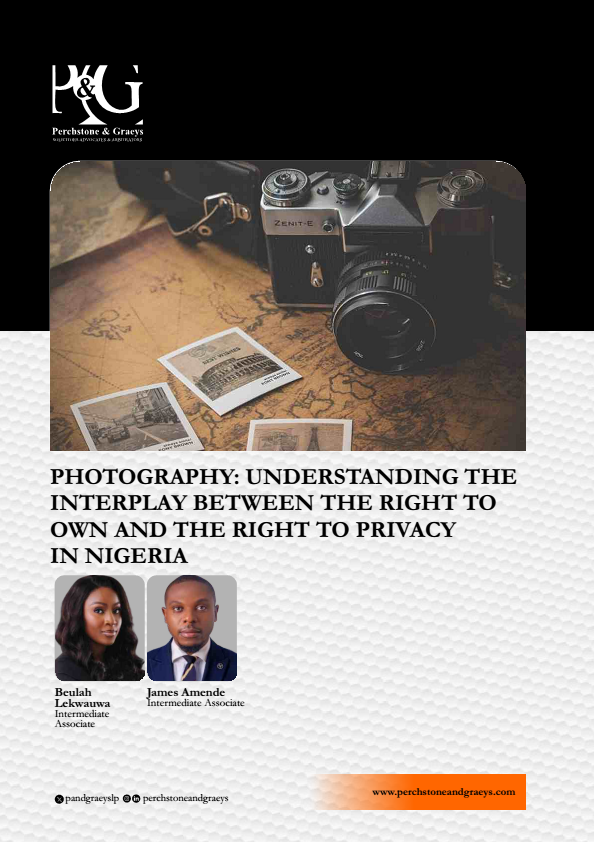Introduction
Photography is a powerful tool for storytelling, artistic expression, and documentation. In an era of digital media and pervasive surveillance, a significant legal and ethical dilemma arises: where does the photographer’s right to capture and own an image end, and where does an individual’s right to privacy begin? In Nigeria, this issue is particularly relevant given the increasing use of smartphones, Closed-Circuit Television (“CCTV”) cameras, and social media for personal and public purposes. While photographers and content creators have the right to own and distribute images under intellectual property laws, individuals have the right to privacy, enshrined in statutory provisions.
These rights can both complement and conflict with each other, depending on the circumstances. In an instance where a photographer captures an image of a subject with the subject’s consent, the photographer owns the image while respecting the privacy of the person captured. However, where a photographer takes a picture of someone without their consent in a private setting, it may violate their right to privacy even though the photographer owns the image, technically. Given this interplay, this article will delve into exploring the intersection between artistic copyright and the right to privacy, while emphasizing the need to balance both in the digital age.

